|
Originially posted on the Berkshire Taconic Community Foundation Berkshire Taconic Community Foundation is proud to announce the launch of the Equity Fund grant program, focused directly on addressing systemic inequities and supporting underserved communities across Berkshire, Columbia, northeast Dutchess, and northwest Litchfield counties. The fund’s grant application is now open, and BTCF invites local organizations, individuals, and coalitions to apply for funding to advance projects that promote equity and inclusion.
The Equity Fund grant program is a significant step forward in deepening the Foundation’s commitment to fostering a more just and inclusive society, and is part of a three-tier Equity Initiative: The Equity Fund for Grantmaking, The Leadership Advisory Committee, comprised of local leaders of color that make grantmaking decisions in collaboration with community, and the Donor Learning and Giving Circle, comprised of donors committed to shared learning, deeper understanding and collective action to advance racial equity and inclusion through philanthropic practice. The Leadership Advisory Committee members are: Gwendolyn VanSant (Board Liaison), Elena Mosley (Columbia County), Monti Lawson (Northeast Dutchess), Florence Afanukoe (Berkshire County), Mia Shepard (Berkshire County), and Alÿcia Bacon (Community Engagement Officer for Equity and Inclusion, BTCF). The initiative’s journey began in 2019 under the leadership of Gwendolyn VanSant (BRIDGE CEO & Founder and BTCF board member) who conducted focus groups with the BIPOC community to assess current needs. Local leaders of color were also invited to collaboratively design the Equity Initiative with BTCF and serve on the Leadership Advisory Committee. The grant will provide critical financial support to nonprofits and community-based organizations working on innovative solutions to address racial justice, economic disparities, educational inequities, and healthcare access.
0 Comments
The grassroots organization has acquired a home base for continuing its legacy programs in the spirit of Elizabeth "Mumbett" Freeman, Frederick Douglass, and W.E. B. Du Bois. Written by Robbi Hartt for the Berkshire Edge | July 8, 2024 | Original link “Since 2007, our BRIDGE mission has been promoting mutual understanding and respect among diverse groups serving as a resource to both local institutions and the community at large. We serve as catalysts for change and integration through collaboration, education, training, dialogue, fellowship and advocacy.”
— Multicultural BRIDGE website It’s hard to capture all that Multicultural BRIDGE (Berkshire Resources for Integration of Diverse Groups through Education) is and does. As the needs arise, the programs follow. This responsiveness is how founder and CEO Gwendolyn VanSant has operated since starting the nonprofit organization back in 2007, bringing her skills and passion as a community organizer and renowned thought leader on racial justice, reparations, gender equity, and anti-poverty work to the Berkshire community. BRIDGE programs center around core values of empowerment, collaboration, learning, celebration, integration, safety, and justice. The most critical ingredients of all, however, are love and commitment—and you feel that the moment you walk through their doors. Known for her ability to integrate research-based positive psychology practices, VanSant brings moral courage and an affirming spirit to her work with diversity leadership, equity and inclusion, and strategic planning. Just as Volunteers in Medicine (VIM Berkshires) takes a holistic approach to address clients’ health, BRIDGE is committed (per its website) to a “360-degree approach to community, civic participation, and public health.” Its stated mission is “to impact hearts, minds and behaviors that result in positive cultural shifts and systemic changes in policy, law and practice towards a more just, safe and equitable society.” Kate Abbott | BTW Berkshires: Read the full article 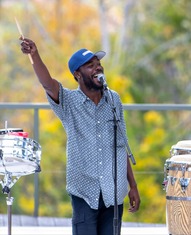 In bright sun on a mountaintop, four dancers swirl bright skirts and open their arms to the open ridges and a blue fall sky. They are performing folkloric dances from Mexico, Costa Rica and Ecuador, they explain, dances from the countries where they have family and roots, though they live here. Four young women from Latinos Unidas de los Berkshires perform on the outdoor Leir stage at Jacob’s Pillow — and after them women their mothers’ generation from Patricia Cambi Dance, all in celebration of the woman who has helped them to find home, friendship and affirmation, and helped their children to grow. Today BRIDGE is celebrating 15 years in action. Founder and C.E.O. Gwendolyn Van Sant has grown a creative place and a center of community that has reshaped Great Barrington and the Berkshires, people around her will testify today, and has offered resources and strength and roots far beyond the county. This is the community you have made.’ — Sylvia Soria to Gwendolyn Van Sant, founder of BRIDGE 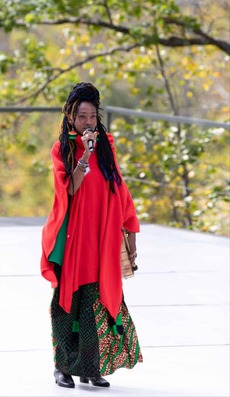 Silvia Soria, coordinator of BRIDGE’s Women to Women program, says to her, look around today — ‘This is the community you have made.’ On Sunday afternoon, many of the people Van Sant has touched across the years have gathered for BRIDGE’s gala, Catalyst. Love. Impact. The intent, listening crowd who have come together become a living embodiment of how far and wide BRIDGE’s reach has grown around the world. Star Nii, an internationally acclaimed percussionist from Ghana, opens the day with the warm clap of his hands on his drum heads, and the wind stirs a high tone from his chimes. Another drum sounds like a heartbeat, and Sunder Ashni, vision builder and steward at Mumbet Freedom Farm, sings a blessing, gathering in the crowd to call out the word for love in many languages. Warmly and openly she invokes Mohican community and elders on their homelands, and she calls for a sense of connection, one heart, one mind, in the words of the Haudenosaunee, people of the long house, one of the oldest participatory democracies on earth. ‘Think about who you belong to, whose you are, who you are responsible to.’ — Sunder Ashni, vision builder and steward at Mumbet Freedom Farm She invites her listeners to rest a hand on their heart and think of the people and places close to them … and then turn to someone near them and share what they’re thinking. “Think about who you belong to, whose you are, who you are responsible to,” she says. And then a traveler to Ghana picks up the mic. Jeffrey Allen Peck, the great grandson of W.E.B. DuBois, has performed as his great grandfather in the country where DuBois lived at the end of his life and is buried. Peck is traveling the world right now, he says, performing as his great grandfather in the new play Justice on Trial by Dr. Chad Everette Lawson Cooper and actor Alicia Robinson Cooper, and he speaks warmly of a growing relationship with BRIDGE across more than eight years, and a continuing legacy of activism. “It’s hard to talk about someone like my great grandfather and all he’s done,” Peck says, “and when I think of all the people he has brought together — I think of his work with Crisis Magazine.” Crisis is the official publication of the NAACP, which DuBois co-founded. He created the magazine in 1910 and acted as editor through 1934. Peck sees his work as instrumental — DuBois created a forum where Black folk across the country could read about people in their community and become inspired. “Gwendolyn is doing the same,” he said, “all over the country.” ‘My great grandfather brought people together … and Gwendolyn is doing the same, all over the country.’ — Jeffrey Allen Peck, great grandson of W.E.B. DuBois Berkshire Edge | Shaw Israel Izikson Great Barrington -- The work of Multicultural BRIDGE Founding Director and CEO Gwendolyn VanSant, along with community leader Wray Gunn, was celebrated at an awards ceremony at the Mahaiwe Cemetery on Saturday, July 15 in front of the Du Bois family grave site. The ceremony, known as the Torch-Bearer Awards, was part of this year’s Sri Chinmoy Oneness-Home Peace Run.
The organization behind the event is a 501(c)(3) nonprofit based out of New York City and has organized the peace torch relay event since 1987. According to its website, since its inception, the organization has had over seven million participants in 155 countries, with over 395,000 miles run with the torch. David Fix | Berkshire Edge BerkShares is well-known as a tool for elevating local businesses in the Berkshires and fostering a vibrant regional economy. Now, as an innovative partnership with Multicultural BRIDGE demonstrates, the local currency is also augmenting the impact of social and economic justice work in the region. Multicultural BRIDGE was founded 15 years ago in Great Barrington by Gwendolyn VanSant, Marthe Bourdon, and Bob Norris. While working as a certified medical and mental health Spanish interpreter, Gwendolyn became deeply immersed in the Latinx community in the Berkshires and noticed a lot of needs that mirrored her own as a Black single mother. “I realized that some of the same barriers, although they were dressed up differently, existed for both me and the immigrant population that I was advocating for,” Gwendolyn shared. At the same time, she observed similar gaps surrounding people living in generational poverty in the Berkshires regardless of racial or ethnic background. Thus, Gwendolyn helped found Multicultural BRIDGE—a non-profit that could identify resource gaps for members of the Berkshire community left on the periphery and provide access to those resources. BRIDGE is short for Berkshire Resources for the Integration of Diverse Groups and Education. At the heart of BRIDGE’s programming is its Women to Women initiative, an immigrant women’s support group, and Happiness Toolbox, which focuses on youth programming.
For Gwendolyn, the partnership between BRIDGE and BerkShares is a no-brainer: “It just aligns with BRIDGE’s values: follow the money, support local community.” Gwendolyn also hopes that BerkShares can help break down what she refers to as a “societal ‘either or’ around race relations” by advancing a model through which diverse groups in the Berkshires “can see themselves as one community where there is mutuality and value on all sides.” By Sabrina Damms | iBerkshires
SHEFFIELD, Mass. — Community and civic leaders, including former Gov. Deval Patrick, gathered at Old Parish Church on Sunday afternoon for the unveiling of a monument to civil rights pioneer Elizabeth Freeman exactly 241 years to the day that she won her freedom in court. Freeman's story may be well-known in the Berkshires but not so much elsewhere. She was, wrote former President Barack Obama, an "American hero whose story has not been told enough." Now a full-size bronze of Freeman by sculptor Brian Hanlon stands in front of the church at 125 Main St., which faces what was the home at the time of attorney Theodore Sedgwick. Sedgwick represented Freeman in her fight for freedom in 1781 in one of the most important legal cases in Massachusetts history: It ended slavery in the Bay State and helped pave the way for civil rights. Freeman and a man named Brom sued for their freedom under the new state Constitution from the man who enslaved them, John Ashley, whose wife abused Freeman and her sister. Ashley was also ordered to pay them damages. Freeman, who had been known as Bett, or Mum Bet, chose her own name that day. "I want to thank all the members of the community, from Sheffield, from Berkshire County and beyond for lifting up Berkshire's Black side. It's exciting. It's been wonderful. It's been wonderful to have been your neighbor for 20 years now," said Patrick, who owns a home in Richmond. "It turns out Black people have always been here. What a shame that so few of us fully appreciate that. What a shame that so little of our history is actually taught and understood. And that's a part of why today is so important on her own merits." Patrick read the letter from the president and former first lady Michelle Obama that noted Freeman never learned to read and write yet "she recognized that under an honest interpretation of our laws, she, too, was born free and equal. She endured abuse and humiliation. Yet she helped our legal system begin to recognize the dignity of all people. And in obtaining her own freedom from slavery. She brought our nation closer to fulfilling its founding promise. "We hope that people visit this monument and are reminded of our shared responsibility to root out injustice whenever we encounter it. There is no better tribute we can pay to her legacy." His wife, Diane Patrick, read a letter of support from actor Meryl Streep. Streep, who lives close by, described Freeman as "more important than Davey Crockett" in an interview a decade ago about her work toward creating a National Women's History Museum. State Rep. William "Smitty" Pignatelli said the monument came together in less than 10 months. "We picked this date, because it was the actual date of [her] emancipation, and to have a beautiful day like this ... the community rallied around it and helped us raise money," said Pignatelli following the unveiling. "We have an endowed scholarship in perpetuity that next year will be in every high school in Berkshire County, which was our ultimate goal. But today, it was really very, very special. And she will now stand for generations to come as a free woman on God's earth and which is all she really wanted." Hanlon, who also sculpted the monument to Susan B. Anthony in Adams, wanted to depict Freeman as the "strong" and "beautiful" woman she was. "What got me about her story, I come from a family of attorneys and judges, is the brilliance in her bravery to seek good counsel. And that is something that today it's a real thing for all of us to do what we needed. But back then unheard of," he said. Along with the work from the Sheffield Historical Society, many of the speakers thanked the sponsors, volunteers, and advocates who helped make the day possible. "Because of our community's outstanding generosity, we were able to establish a fund to support annual scholarships for graduating seniors throughout Berkshire County for many years into the future," Sheffield Historical Society President Paul O'Brien said. "This is a true and lasting legacy for Elizabeth Freeman. The scholarships and the statute will keep Elizabeth Freeman's accomplishments fresh in our minds for many generations to come." The Rev. Jill Graham of First Congregational Church gave a prayer to honor Freeman's courage and conviction that "shined a light on the path of justice, whose hope became action that altered the course of history." "Lift Every Voice and Sing" was performed by Akilah Edgerton, Berkshire School's dean of diversity and inclusion, and the national anthem by Christine Biele. Select Board Chair Rene Wood and board member Nadine Hawver read a proclamation from the board dedicating Aug. 21 as Elizabeth Freeman Day for pursuing "audaciously and against all odds" her freedom and providing an "example of what is possible when a single person, no less a woman, has the courage to seek that declared impossible." Freeman serves as an inspiration for her role as an entrepreneur and property owner, and activist in the 18th century said Gwendolyn Hampton-VanSant, CEO and founder of Multicultural BRIDGE. She quoted Freeman as saying, "If one minute of freedom had been offered to me, and I had been told I must die at the end of that minute I would have taken it just to stand one minute on God's earth a free woman I would."
The CROWN Act was just signed into law this week. This means people who have braids, dreadlocks and twists can no longer be discriminated against because of their hairstyle. Supporters of the bill say for years, Black women had to change their hairstyles to conform to work place culture.
In 2017, Deanna and Mya cook were put into detention for violating a school dress code policy due to their hairstyle. The sisters inspired the CROWN Act. Gwendolyn VanSant is the founding director of BRIDGE, a racial justice organization. She is hoping the bill will help people of color feel more comfortable wearing their own hairstyles. “I think it’s going to be an educational opportunity to explain, but to also it really is a time where we can have pride in our heritage,” said VanSant. This film featuring local Berkshire Leaders of Color working toward justice and public health equity, screens at the Mahaiwe on Thursday, May 5th at 6 p.m. BY HANNAH VAN SICKLE | Originally Posted on The Berkshire Edge Great Barrington — In art, the medium of mosaic relies on many small pieces that — when intentionally fit together — create a cohesive and aesthetically pleasing whole. Its etymology stems from the Medieval Latin “musaicum”, or work of the muses, goddesses believed to elicit thoughtful inspiration. Suffice it to say, CEO and Founding Director Gwendolyn VanSant and her team at BRIDGE (Berkshire Resources for Integration of Diverse Groups and Education) have been musing over the myriad connections between racism and health—as evidenced by the premiere of “Mosaic,” a short film featuring local Berkshire Leaders of Color, working toward justice and public health equity. The screening will take place on Thursday, May 5th at 6 p.m. at the Mahaiwe Performing Arts Center in Great Barrington; the film will be in English with Spanish subtitles. “The Mosaic project is exciting because it’s putting BRIDGE’s racial justice and racial equity work in the public health sphere,” said VanSant, the nonprofit’s founding director, emphasizing the importance of seeing the big picture. “I don’t necessarily think that the public health arena sees systemic racism as their work all the time, especially in Berkshire County.” BRIDGE’s racial justice organizing and equity and inclusion training addresses the social determinants of health through dialogue, action and education. In order to identify viable solutions, BRIDGE strives to highlight and provide pathways of understanding in how the social conditions lead to the health outcomes and disparities experienced not only locally in the Berkshires and regionally throughout western Massachusetts, but also statewide and nationally. Commissioned by the Western Massachusetts Health Equity Network and created by local filmmaker Michelle Falcón Fontánez, “Mosaic” highlights the transformational work of local leaders of color and other voices from the Connecticut River Valley to the Berkshires—including the stories of two community members: BRIDGE leader Florence Afanukoe and long-time Berkshire resident Arthur Wright. “The story of immigrant families in Berkshire County is a seemingly unique and nuanced experience that I, being an immigrant, have explored firsthand and can narrate the reality,” said Afanukoe, who moved with her family to the United States from Togo in 2008 and graduated from Pittsfield High School; Wright migrated to the Berkshires from North Carolina more than 50 years ago. Together, they hold an intergenerational and cross-cultural conversation, contrasting their experiences moving to the primarily white community of the Berkshires and sharing experiences during the pandemic—an ongoing period that continues to shed light on the glaring health disparities and impact within the most vulnerable in Berkshire communities. “The timing was perfect,” said VanSant, of WMHEN reaching out during the pandemic to explore a conversation rooted in systemic racism and public health. With year two of the organization’s mutual aid program well under way—one that focused on marginalized communities, Black elders, immigrants, and individuals living with disability in the Berkshires—it made sense to pair two members of the BRIDGE community: Wright, the organization’s oldest participant and Afanukoe, a youth leader, current staff member and University of Bridgeport student focused on Public Health. “It was BRIDGE that inspired me to start on this path to make a difference,” said Afanukoe, pointing to the nonprofit’s support—in particular while an immigrant youth navigating high school—as instrumental to her success. She ultimately presented her project, “Inspiring Change,” during a course led by BRIDGE educators, JV VanSant and Gwendolyn VanSant. “As a follow-up, BRIDGE provided an amazing internship and service learning opportunity, where I worked with youth and followed through with my project,” said Afanukoe who will graduate in December.
“She’s really grown into her leadership and her voice,” said VanSant of the soon-to-be public health graduate who, while an immigrant student from Africa, encountered systemic and cultural racism in school alongside the immersion of her family into the region. Wright recounts leaving the segregated South and finding a space and home here in the Berkshires to have agency over his and his family’s livelihood. Since its inception in 2007, BRIDGE has worked at this intersection—connecting people of color and other systematically excluded community members with key resources and networks while providing education to local institutions and the community at large. Their goal, as evidenced during the pandemic, is to improve health outcomes via direct support of vulnerable communities and youth while working across sectors to build a Berkshire culture of health, equity, safety and justice. “This particular film is 25 minutes long [and] really focused on systemic racism and health disparities,” said VanSant, pointing to people’s access to health, their experience of racism and how that impacts their health. “It’s a powerful 25 minutes, and it’s really for anybody,” she said, citing youth, health professionals, and anyone who has ever been a patient. In addition to BRIDGE, the filmo features stories from three other local, grassroots organizations leading the way toward healthier communities and advocating for equity, justice, representation and transformation: Women of Color Health Equity Collective (formerly MotherWoman, Inc.); Estoy Aqui; and the Ohketeau Cultural Center. The screening will be followed by a panel discussion and community conversation facilitated by VanSant—nationally recognized for her anti-poverty and race equity practices as the National Drum Major for Justice awardee for BRIDGE’s mutual aid work on behalf of the most vulnerable during the pandemic—will be joined by Jessica Collins, Public Health Institute; Sasha Jimenez, Planned Parenthood and Mosaic Film Committee; Colin Adams, Associate Professor of Sociology at Berkshire Community College and Dr. Lara Setti of Community Health Programs; featured film participants, Florence Afanukoe and Arthur Wright, will also be present. Using the voices of marginalized and vulnerable communities to develop the best path forward—towards building healthy, thriving communities—remains central to the work of BRIDGE and their partners, a mission VanSant underscores: “The film is really meant to empower and amplify the story of people not usually at the center [of such narratives], so I’m really excited.” NOTE: This event is part of a regional screening tour organized by the Western Massachusetts Health Equity Network and local partners, with cultural exploration, performances and wide-ranging discussion centered on the film. The events preceding the screening, which start at 4 p.m. in Giggle Park in Great Barrington, are made possible in part by the Blue Cross Blue Shield Race Equity Grant, a two-year grant to support BRIDGE’s racial justice education, campaigns and organizing. Additional partners include Berkshire Community College, Community Health Programs (CHP), Greylock Federal Credit Union, World Farmers Market and the Town of Great Barrington. For complete details of the showing, and to reserve a seat, visit this site. Reservations and proof of vaccination is required to attend the showing. Jonathan Hunter | Posted to WNYT
W. E. B. Du Bois was born 154 years ago on Feb. 23, in the town of Great Barrington. Du Bois was a civil rights leader who co-founded the NAACP. When you travel around Great Barrington, you'll see pictures and paintings of Du Bois. Du Bois was a writer, a teacher and a sociologist. Du Bois went to Fisk University and became the first African American to earn a P.H.D from Harvard. Jeffrey Peck is a great-grandson of Du Bois. He is honored to carry on the legacy of his great-grandfather. Since Du Bois is from Great Barrington, the town for the last few years has recognized his birthday as a holiday. Gwendolyn VanSant is the vice chair of the W.E.B. Du Bois legacy committee in Great Barrington. She says Du Bois was a remarkable man because of his fight for racial justice. Copyright 2022 - WNYT-TV, LLC A Hubbard Broadcasting Company
About 100 people gathered closely around the Du Bois family’s resting place, sheltering each other as best they could from the frigid wind and the driving snow. Before unveiling the covered grave marker, a few family members made some comments. Irvin’s son, Jeffrey Peck Sr., peered at the crowd through the snow, remembering his mother’s presence. “No matter how old I get, I’ll always be her baby boy,” he said. Irvin, the only granddaughter of Great Barrington native and civil rights pioneer W.E.B. Du Bois, died Nov. 15, in Fort Collins, Colo. She spent much of her 89 years continuing her grandfather’s work in education, civil rights and community building. Irvin wished to be buried where much of her family rests, in the Mahaiwe Cemetery. W.E.B. Du Bois buried his 2-year-old son, Burghardt, in that cemetery in 1899. There, he buried his first wife, Nina, in 1950. He returned to Great Barrington one last time, in 1961, at age 93, to bury his only daughter, the mother of Yolande Du Bois Williams Irvin. Irvin usually insisted on being called by her nickname, Du Bois, as all her family and friends referred to her. And she always referred to her grandfather as “Gran’Pa.” The celebration of Irvin’s life, organized and sponsored by the Berkshire Resources for Integration of Diverse Groups through Education, or Bridge, started at the First Congregational Church in Great Barrington, part of the town’s weeklong celebration of her grandfather’s life (his birthday is Feb. 23). In attendance were several generations of the Du Bois family, as well as friends and colleagues from Houston, where Irvin’s son resides. Bishop James Dixon II, of Houston’s Community of Faith Church and president-elect of NAACP Houston, also was there. Several of Irvin’s family members, as well as other friends and admirers, spoke of her joyful relations with seemingly everyone that she met. Gwendolyn VanSant, CEO of Bridge and vice chair of the Great Barrington Du Bois Legacy Committee, explained that late in her life, Irvin asked her son, Jeffrey Peck Sr., to be sure she is buried at her family’s gravesite. “This decision came late in her years when she acknowledged … the way in which our town was finally embracing her grandfather,” VanSant said. Deepika Bains Shukla, head of the Springfield U.S. Attorney’s Office, said Irvin set her on her career path. “Dr. Du Bois [Irvin] inspired me to enter into a career to work on civil rights,” Shukla said. “So, I am deeply grateful to be here and to be a part of this celebration.” Dennis Powell, president of the Berkshire County chapter of the NAACP, noted that Irvin always was outgoing, and friendly, to all. “I feel like she never met a stranger, and her friends often became members of her extended family,” he said. “Imagine if everyone did this, what a better world this would be.” Michael Curry, NAACP national board member and chair of the board’s Advocacy and Policy Committee, said he spent much of his youth trying to understand why people were treated so differently because of the color of their skin, and noted that the teachings of Irvin and her grandfather helped to set him on the path of correcting issues of inequity. “The work Yolande did was the essence of her family’s history, a history of service,” he said. During the reflections on Irvin’s life, she was described as a guide and mentor to many young people and someone who purposely set out to teach at a predominantly African American school to continue with what her grandfather had started. Her family said she served as a mentor to many and that she demonstrated concern for her students, their families and their communities. She particularly placed emphasis on physical and mental wellness. And she developed an acute fondness for the Ford Mustang, of which she owned several and wasn’t bashful about driving a bit too fast from time to time. Near the end of Irvin’s days, her son, Peck, said that a nurse told him: “I come to work looking forward to seeing your mother because she brought a bright spot to my day, every day that I came in.” “That’s my mom,” he said. Her friend, Dr. Mary Nell Morgan, recalled their 35-year friendship. “We had great fun all the times we would get together,” she said. “I love her and I miss her more than words can say. May her soul rest in peace — her job has been well done.” Irvin’s grandson, Jeffrey Peck Jr., said he spent the past five years getting to know her, and frequently talked on the phone with her. “She could talk for a long time,” he said. “I’m deeply grateful she was able to share her life. I’m so proud of my grandmother; you could never imagine. I deeply love her.” Irvin graduated from Paul Laurence Dunbar High School in Baltimore, where her mother taught. After graduating high school, she accompanied her grandfather to the International Youth Conference in Germany, which she remembered as a highlight of her life. She attended Fisk University in Nashville, Tenn., and finished earning her bachelor’s degree at New York University. She earned her doctorate in psychology at the University of Colorado-Boulder. In 1988, she joined the faculty of Xavier University of Louisiana, in the psychology department. As with her grandfather, it turned out to be her life’s work. |
Archives
July 2024
Categories |
Contact Us |
Stay Connected
|


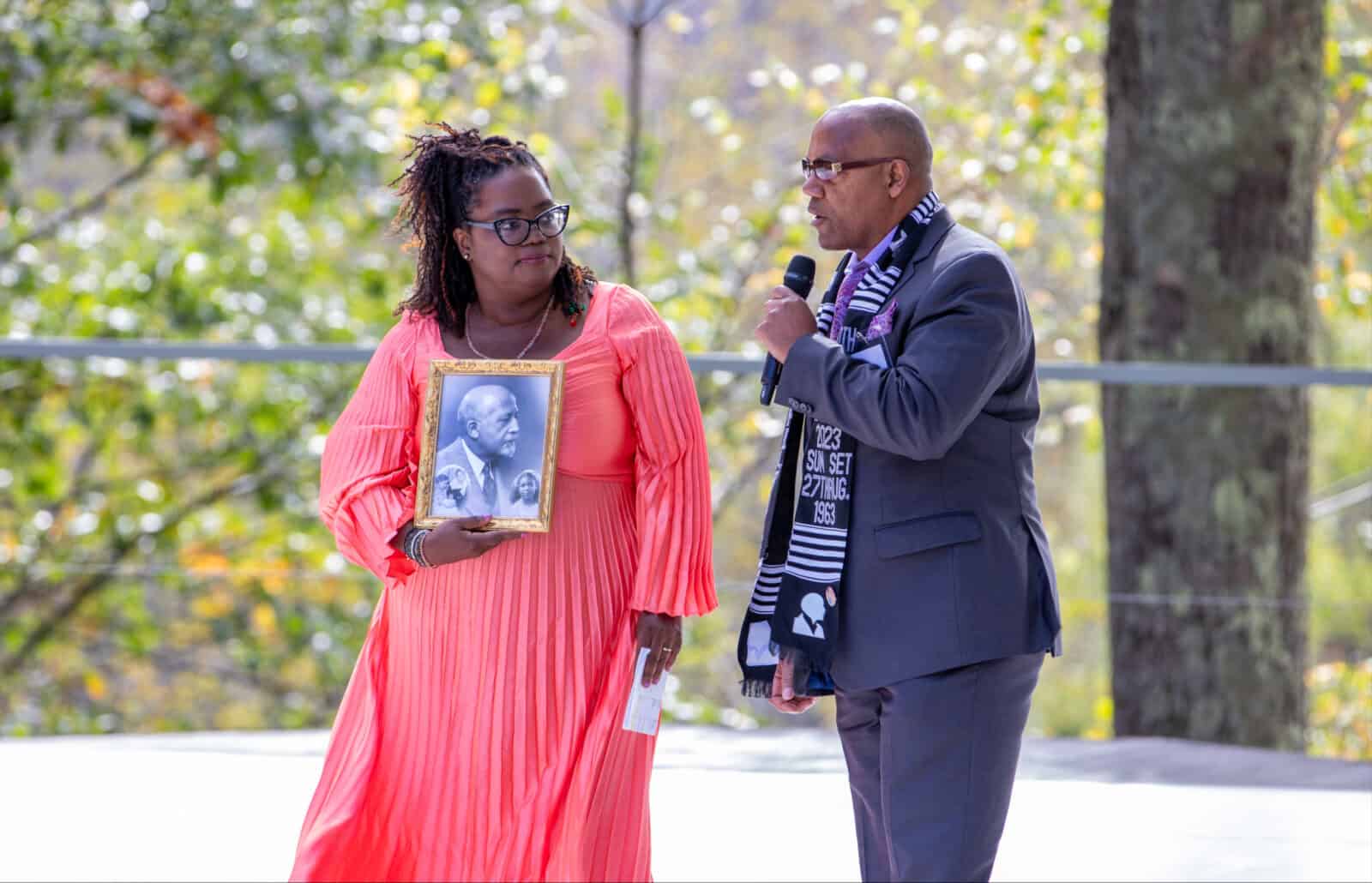
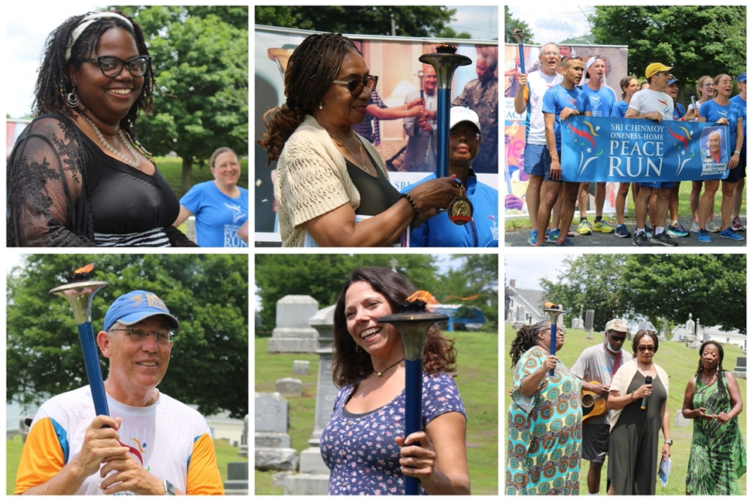
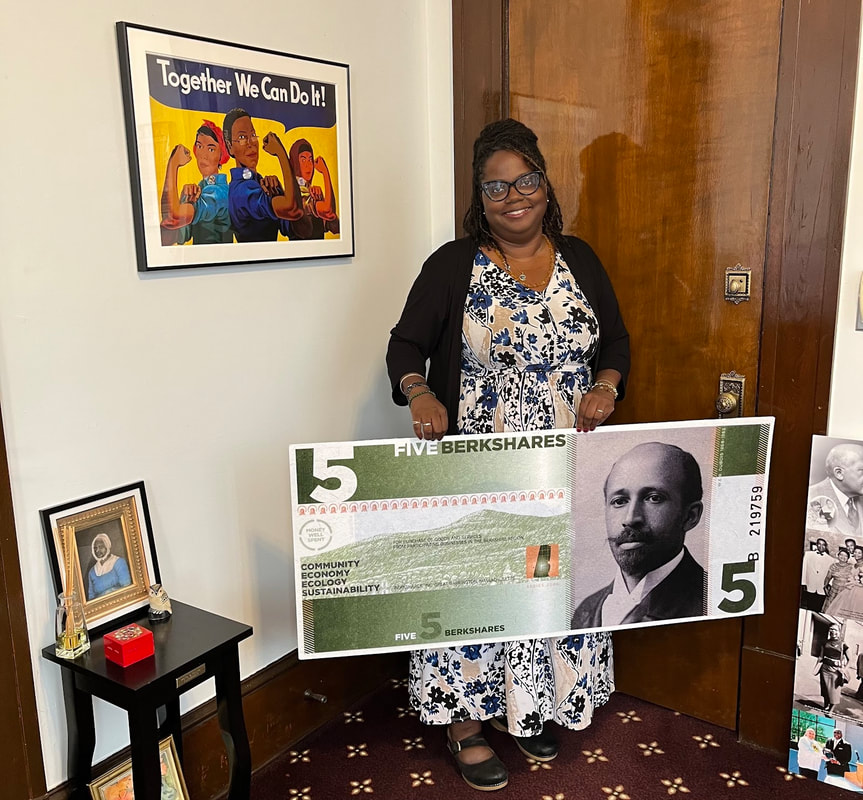
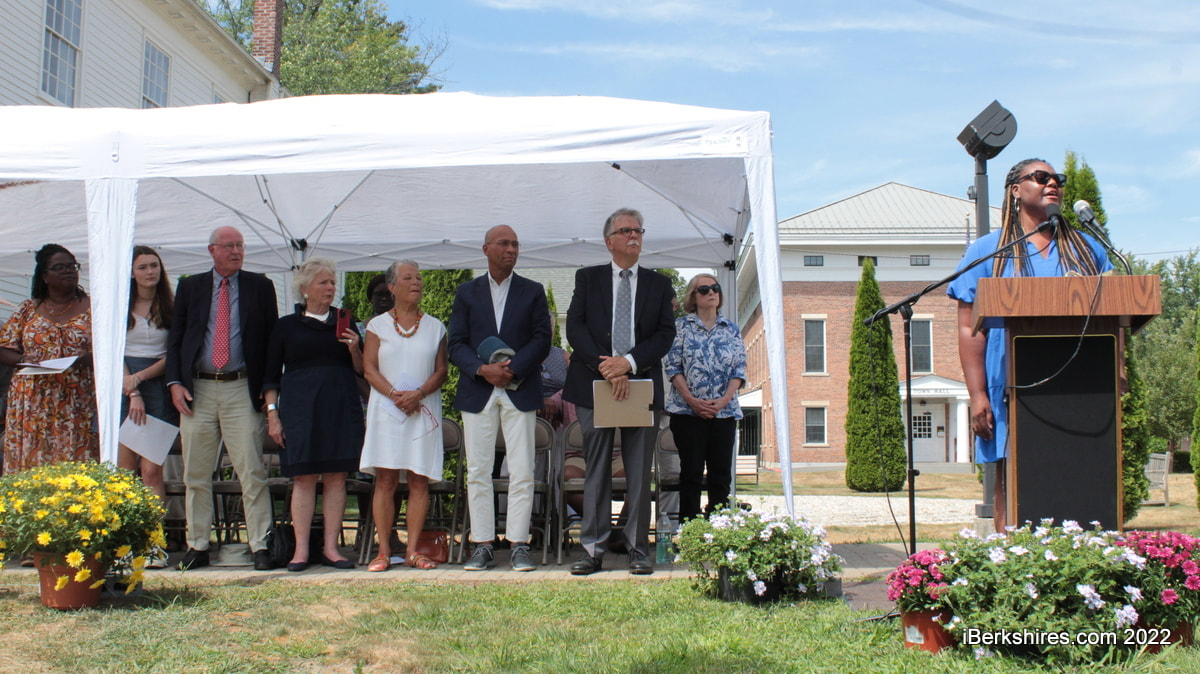
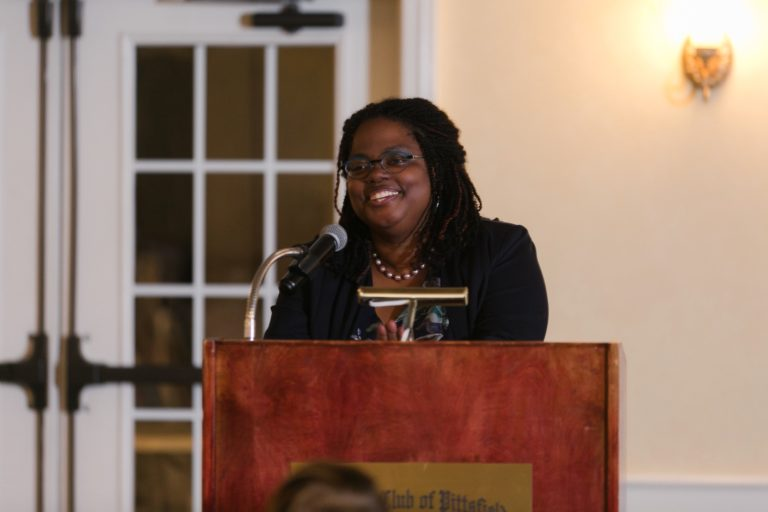
 RSS Feed
RSS Feed